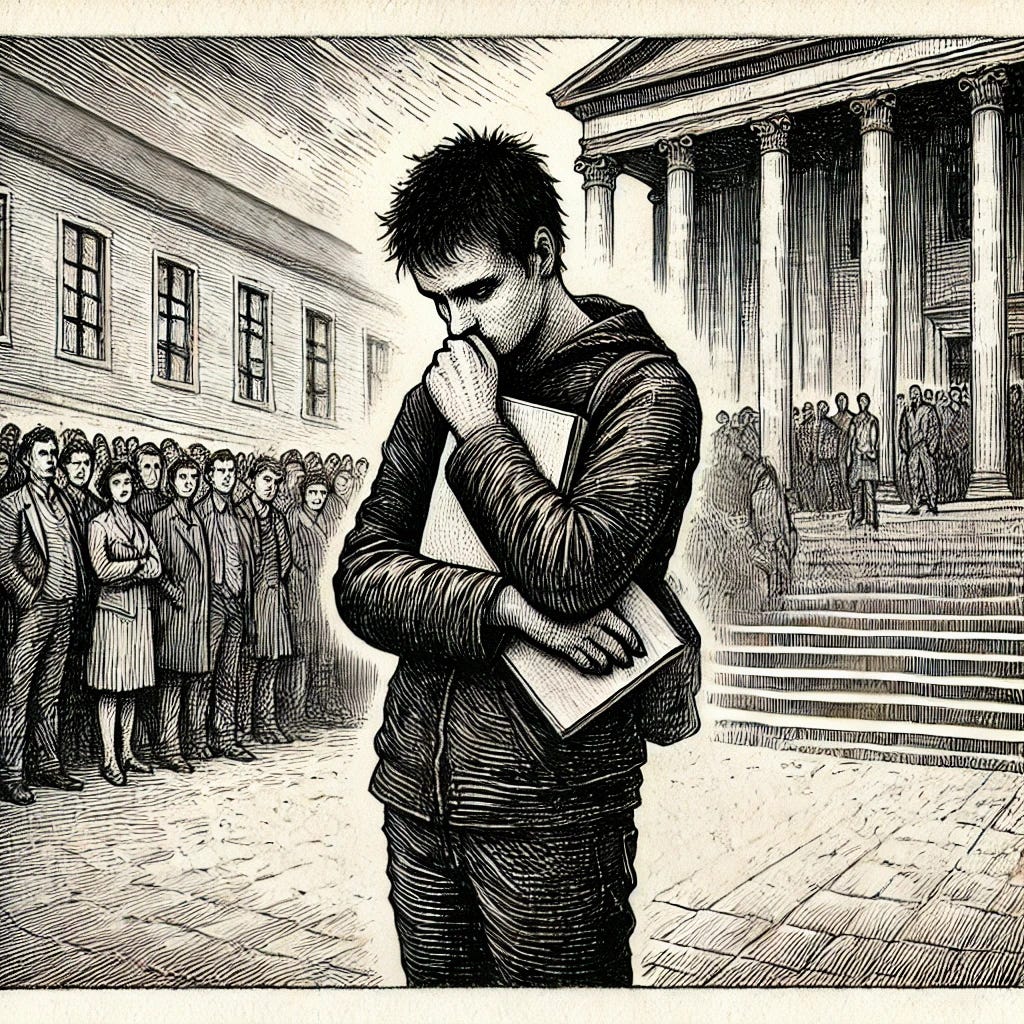The Slow Death of American Individualism
Once, the American story was that of refugees braving the deep blue to plant their pilgrim feet on our stony New England soil, and we have forever since been an intrepid and highly individualistic society. Our national archetypes are the lone cowboy, the pioneer, the rebel without a cause, our captains of industry and titans of fortune. To be a self-made man or the captain of one’s ship is one of the our highest aspirations — to be a sovereign soul with built-in equity and fuck-off money.
Individualism pulsed louder through our veins with every westward wagon wheel and factory whistle. It was the heart of who we believed ourselves to be. That is, a nation where every person can carve out their own destiny. But something has shifted. Walt Whitman’s song of the self no longer carries as far because we loaf too much and invite our souls too little. Worse, it’s not just that the song of the self is fading, but that it is being drowned out by a chorus of the collective.
Why is this happening? The answer lies in the tides of culture, economy, and technology. But first, let’s dive into the numbers. Here’s an excerpt from an essay I recently wrote:
Americans pride themselves on hearing a different drummer, as Thoreau put it. We celebrate coloring outside the lines, thinking outside the box, going against the grain.
But that sentiment may be fading.
People are becoming less willing to stand out from the crowd and defend their own opinions, according to a new study by Michigan State University — and that spells bad news for a culture of free expression.
This finding confirms the results of an earlier survey, published in January 2022 by the Foundation for Individual Rights and Expression (FIRE), that found 58% of Americans are afraid to voice their opinions. And 60% feel our democracy is under threat by cancel culture.
The first cause involves a cultural shift toward identity as a collective experience. Belonging to a particular identity group — based on characteristics such as race, gender, or sexual orientation — has come to matter more than the shape of one’s soul. Given our nation’s history of oppressing particular groups, this was perhaps inevitable if not partly good, in the sense that it helped crack open the polite fiction that we were all granted the tools to self-actualize. But every correction is an overcorrection.



